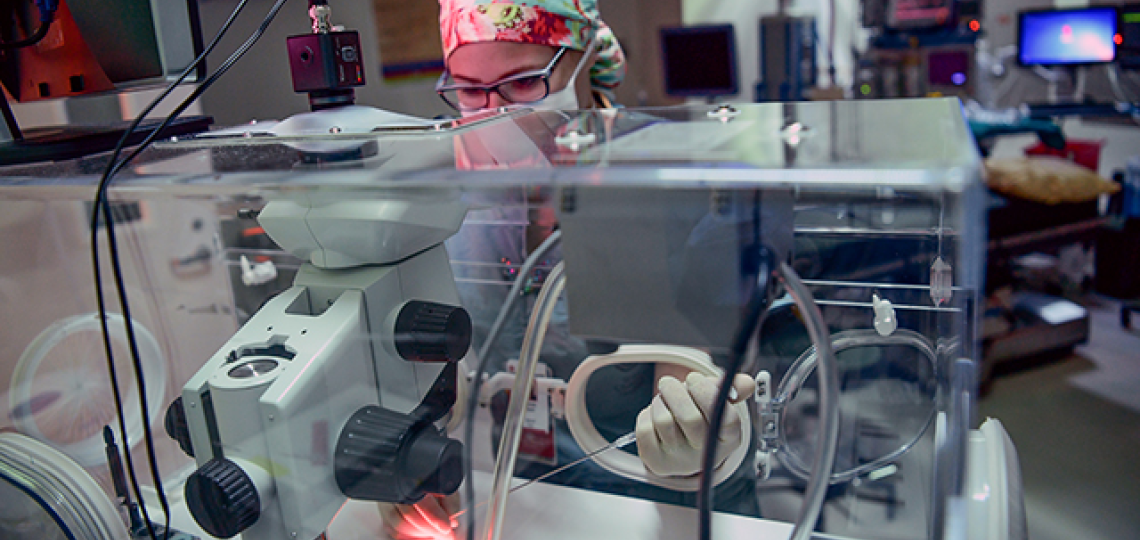
At Baylor College of Medicine, our fertility specialists have helped patients conceive and deliver over 1,700 babies to date, providing a proven, trusted resource for reproductive endocrinology and infertility (REI) care.
We offer excellent pregnancy success rates, the expertise to care for the most challenging and complex cases, and the entire spectrum of fertility care, including ovulation induction, artificial insemination and in vitro fertilization (IVF), among others. Our specialists are committed to helping all women achieve a successful pregnancy, even in cases where infertility treatments have been unsuccessful in the past.
For more information about oocyte (egg) donation or to schedule an appointment, call the Family Fertility Center at (832) 826-7272.
Improving Treatments and Outcomes
Through our research-driven approach, Baylor College of Medicine physicians continue to advance the understanding of reproductive health and the conditions that impact fertility, improving treatments and patient outcomes. At our Family Fertility Center, patients also benefit from a uniquely equipped lab that uses advanced technologies such as the EmbryoScope™ time lapse system to optimize embryo growth, quality, and the selection process for implantation.
Meeting Every Fertility Need
Our comprehensive services include:
- Expert evaluation of female and male fertility with a one-stop approach and diagnosis to all reproductive problems
- State-of-art ultrasound diagnostic center that insures accurate diagnoses
- A wide range of fertility treatment options
- LGBTQ family building
- An andrology lab (sperm count)
- Specialized care for the full spectrum of reproductive endocrine disorders (including PCOS, primary ovarian insufficiency, and recurrent pregnancy loss, among others)
- Elective and oncologic fertility preservation
- Genetic counseling
- Reproductive counseling services to help patients and their partners, if applicable, cope with the stress that can come with fertility treatments
- Telehealth appointments
- Multiple clinic locations to facilitate easier access to appointments
Learn more about our fertility services:
Basics of the Female Fertility Assessment
- Comprehensive consultation
- Ultrasound
- Hysterosalpingogram (HSG)
- Saline-infusion sonogram with ultrasound-based tubal patency assessments
- Hormonal and metabolic testing
Basic Fertility Treatment
- Ovulation induction (Clomid, Femara)
- Ovulation monitoring
- Intrauterine insemination (IUI)
Patient Care Locations
Our fertility specialists provide care at the Family Fertility Center located inside Texas Children’s Pavilion for Women and at The Woodlands Clinic.








